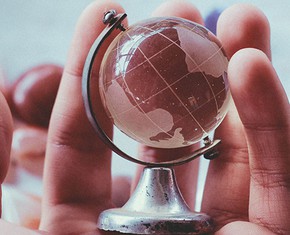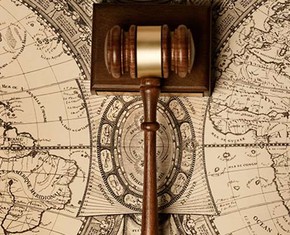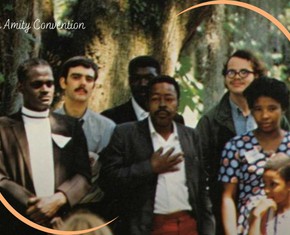The views expressed in our content reflect individual perspectives and do not represent the authoritative views of the Baha'i Faith.
Every great religious tradition teaches the deep sacredness of life. After all, if a Creator gave the creation life, then we’ve all received a profound gift to protect and cherish.
One of the best examples of protecting the sanctity of life comes from the predominantly Eastern Faiths—Hinduism, Buddhism, Jainism and others—which all teach ahimsa, the key religious virtue and guiding principle that all life is God-given and therefore sacred. Ahimsa includes both compassion and non-violence, believing that all living beings share the spark of a divine spiritual energy—that we all take part in a symbiotic, interconnected web of life.
If you believe in and practice ahimsa, you realize that hurting another being ultimately means hurting yourself. The great proponents of non-violence—Mahatma Gandhi, Cesar Chavez, Jane Addams, Martin Luther King, Jr., Dorothy Day, Thich Nhat Hahn, Leo Tolstoy and many, many others—all practiced versions of ahimsa, and utilized it as their guiding principle.
But ahimsa, when properly understood, is actually a broader concept than simple non-violence. The word itself comes from the Sanskrit root hiṃs, which means to hit or strike someone. Hiṃsā means injury or harm, and a-hiṃsā means the exact opposite—non-harming. That concept of ahimsa includes the avoidance of hurting others verbally, mentally or psychologically, which goes far beyond simple non-violence.
The Baha’i teachings ask us all to practice ahimsa, or non-harming:
Beware lest ye harm any soul, or make any heart to sorrow; lest ye wound any man with your words, be he known to you or a stranger, be he friend or foe. – Abdu’l-Baha, Selections from the Writings of Abdu’l-Baha, p. 73.
O ye lovers of God! In this, the cycle of Almighty God, violence and force, constraint and oppression, are one and all condemned. – Abdu’l-Baha, Selections from the Writings of Abdu’l-Baha, p. 149.
… as the days go by, increase thy store of love for His beloved ones. Bend thou with tenderness over the servitors of the All-Merciful, that thou mayest hoist the sail of love upon the ark of peace that moveth across the seas of life. Let nothing grieve thee, and be thou angered at none. It behoveth thee to be content with the Will of God, and a true and loving and trusted friend to all the peoples of the earth, without any exceptions whatever. – Abdu’l-Baha, Selections from the Writings of Abdu’l-Baha, pp. 25-26.
I hope that each one of you will become just, and direct your thoughts towards the unity of mankind; that you will never harm your neighbors nor speak ill of any one; that you will respect the rights of all men, and be more concerned for the interests of others than for your own. – Abdu’l-Baha, Paris Talks, p. 159.
In an address Abdu’l-Baha gave in Paris in 1911, he said:
Let us all deal with each other with infinite kindness. We are all the servants at the one Divine Threshold. We are all receiving the rays of truth from the same Sun of Reality. We must all believe in all the prophets. We must all acknowledge the divine authority of all the heavenly books. We must wash our hearts free of all human prejudices. We must serve God. We must propagate the oneness of the realm of humanity. We must be the cause of the appearance of the perfections in the world of man. We must not be like the beasts of prey. We must not allow carnage and bloodshed. We must regard the blood of men as sacred. We must not shed the holy blood of man for the paltry earth. We must all agree upon one fundamental principle. That principle is the oneness of the kingdom of humanity. – Star of the West, Volume 2, pp. 3-4.
But tragically, with our wars, murders and violence, not everyone in today’s world always regards the blood of men as sacred. Even in places where the ahimsa-focused Faiths predominate, the lower nature of humanity often comes to the forefront, resulting in violence, armed conflict and death. In the next essay in this series, we’ll examine the obvious question such a persistent pattern of behavior raises: will humans always be violent?
















Comments
Sign in or create an account
Continue with Googleor